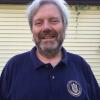
WASHINGTON -- A "Walk of Tears" to remember and honor the victims of clergy sexual abuse in Alaska has spawned two other events to remember victims.
First there was a Mass of healing Oct. 20 celebrated by Bishop Donald J. Kettler of Fairbanks as part of a meeting with the Alaska Federation of Natives. The healing was specifically targeted at sexual abuse, said an aide to Bishop Keller. Even though the names of few victims in Alaska have been released, it is believed many of the victims were Alaskan natives.
Also, on Nov. 28, a statewide day of prayer has been scheduled for all three of Alaska's dioceses: the Archdiocese of Anchorage and the Fairbanks and Juneau dioceses.
Starting the chain of events was the Walk of Tears, held Aug. 27 in Nome, a 3,500-population town in the Diocese of Fairbanks.
The walk was suggested by Fr. Ross Tozzi, pastor of St. Joseph Parish in Nome and three other parishes in the diocese.
"The bishop was coming to Nome in order to personally reach out to survivors of clergy sexual abuse. There are people who have passed away already, who took their secrets with them to the grave. There are others who chose not to come forward in a public way who are victims of abuse," Tozzi told Catholic News Service in an Oct. 19 telephone interview from Kotzebue, Alaska, 183 miles from Nome, where he pastors another parish.
"So, in order to honor those who were dead, in a special way, and to those who suffer silently, we had a march of tears from what I call ground zero in the community -- on the site where St. Joseph Church used to be," the priest said.
A Jesuit priest who had been pastor of St. Joseph had been accused of improper sexual contact with many Alaskan natives. The original church building itself was dismantled; Tozzi said that in Alaska, people will "take portions of the [abandoned] building and move them around."
The walk from Nome's main boulevard to the town cemetery was a little more than a mile. Thirteen people participated, including all three of the state's bishops.
Kettler told CNS Oct. 20 that his visit to Nome was another in a series of visits he is making to all 45 parishes in his diocese. The series began last May and is expected to go into November 2011 because of the travel distances involved.
At each parish, he said, he offers an opportunity for one-on-one conversation, conducts a listening session, celebrates a healing Mass, and takes part in a "potlatch" -- what people in the lower 48 would call a potluck.
"We had (abuse) claimants coming forward immediately after I arrived here eight years ago," Kettler said. "We've been dealing with sexual abuse ever since I became bishop here. That [Nome] pastor [accused of abuse] I never knew. He had been gone from here before I arrived."
Archbishop Roger L. Schwietz of Anchorage said in a column in the September issue of the Anchor, the archdiocesan newspaper, that he had always wanted to visit Nome upon his arrival in Alaska. But this first flight, he added, was made "out of shame -- shame because some who proclaimed themselves to be messengers of the Gospel of Christ also became instruments of evil."
He added, "My mood was lifted, however, by a kind native lady who stopped me as I was getting off the plane -- she was staying on -- and, apparently recognizing something of what we bishops were trying to do, simply said that the healing process had slowly begun and encouraged me to carry on."
Schwietz said, "Only God can bring about the healing that is needed, but because we are all part of the body of Christ, somehow we all must help bear the burden of this cross placed upon the shoulders of some of our brothers and sisters. I am all the more convinced, also, of the rightness in what we bishops have committed ourselves to in choosing to do everything possible to ensure that our church is a safe place for children and youth."
Bishop Edward J. Burns of Juneau issued his own statement on the Nome trip, noting that he and his fellow bishops issued apologies to survivors of sexual abuse. "Saying that you are sorry is never easy, but I am grateful for the opportunities throughout the weekend to meet with survivors face-to-face," he said.
During the listening session in Nome, "I witnessed the pain caused by the abuse of those who should have been trusted," Burns said. "I felt the rage of those who acknowledged that the bishops and leaders in the church had betrayed a trust by failing to respond to such abuses."
Burns reminded Catholics in his diocese of the pastoral letter on sexual abuse he and his priests signed in June. "In it we pledged that we will do everything we can to ensure healing for victims and to restore trust in the leadership of the Catholic community. We recommitted ourselves to priestly service and to work to grow in personal holiness," he said.
All three bishops will lead their respective dioceses in the statewide day of prayer for abuse victims Nov. 28, the first Sunday of Advent.




